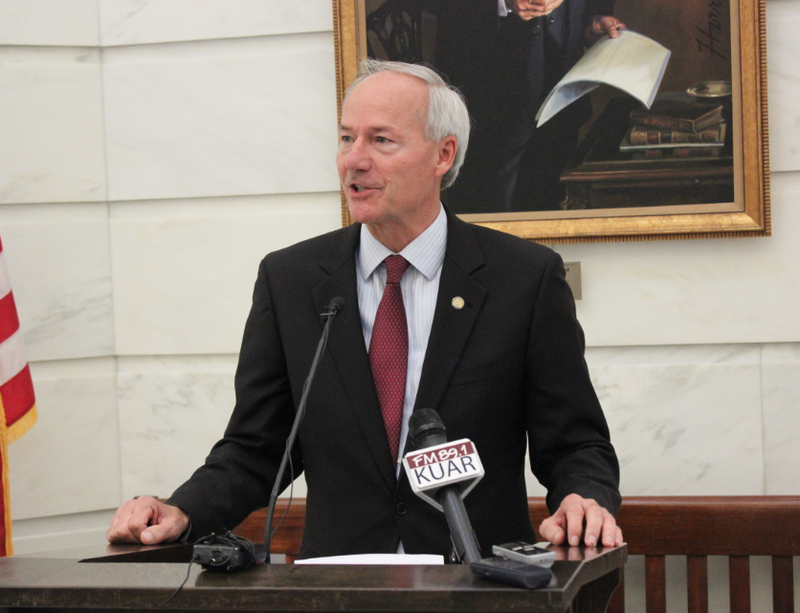Gov.-elect Asa Hutchinson declined Thursday to commit to an approach regarding Arkansas' private-option Medicaid expansion, saying he wants to study it further before making any decisions.
Hutchinson, speaking at the state Capitol in his first news conference since winning Tuesday's election, was asked about the private option, which will require a three-fourths supermajority in the state House and Senate to continue its funding.
"I don't want anyone to think there's going to be any change in the position until substantially into next year," Hutchinson said, naming late January as the likely time frame. "I need to have time during the transition to get a better handle on the specifics of the budget and what revisions I want to make to the budget once I'm sworn in as governor, as well as working with [the Department of Human Services] on the programmatic aspects of the option and what changes need to be made."
Hutchinson said there are "clearly" benefits to the private option in the health care it provides and the funding it delivers to hospitals, though he added there's also "a cost aspect to it that I've said throughout the campaign needs to be measured."
"Everybody — whether you're a supporter of it or not — they see some changes that can be made," Hutchinson said. "So I want to work with the Legislature on how we handle that from a cost standpoint, whether it's extended, what the options are."
The state Legislature in 2013 and 2014 passed the private-option with few votes to spare. Some have questioned whether the program can survive after Tuesday's election, in which Republicans added to their majorities in the state House and Senate.
The private option extends insurance coverage to adults with incomes of up to 138 percent of the poverty level. If it is continued, federal funds pay for the program through fiscal 2017, but the state must then cover 5 percent of the cost and 10 percent beginning in fiscal 2020.
